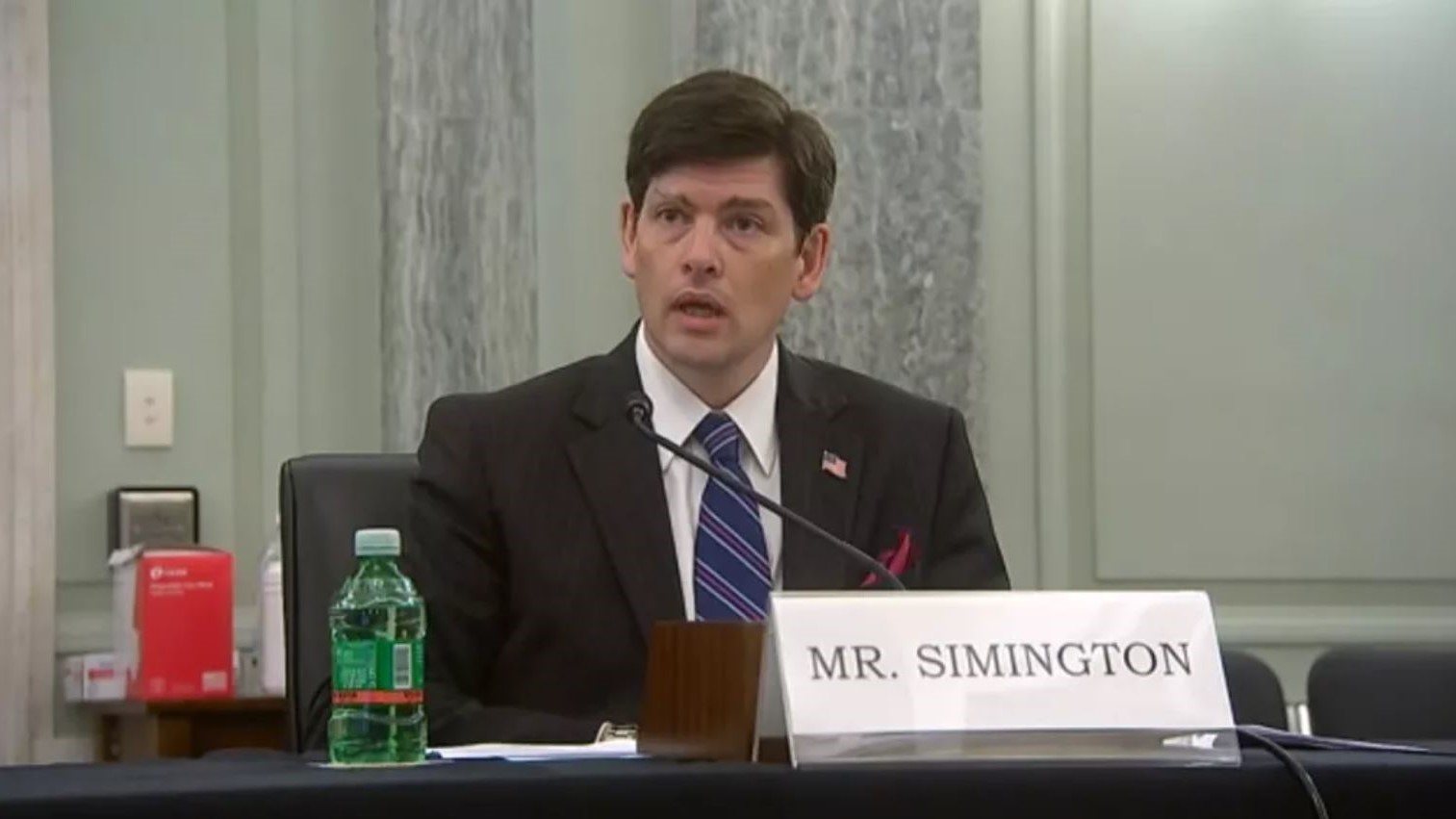
LAS VEGAS—In a wide ranging speech at the 2023 NAB Show, FCC commissioner Nathan Simington complained that power brokers in Washington have an antiquated view of the broadcasting industry that has saddled broadcasters with outdated rules from the “black and white” era of TV and hurt the rollout of NextGen TV, aka ATSC 3.0.
“The average conception of the broadcasting industry in DC is in black-and-white, both figuratively and literally,” Simington said during a speech at the 2023 NAB show. “ Figuratively, in that we think of broadcasting as a family huddled around a glowing CRT television set, watching the Eagle land during the Apollo 11 mission. A glimmering jewel of cultural prestige whose perfect facets shone to millions all at once—as splendid as any sunrise, and better-attended. That memory is, for many in DC, not metaphorical, but literal. Many—I dare say, too many—in the corridors of power in DC have an actual memory of that moment, and may forever think of broadcasting as not unlike the Apollo program: an engine of American greatness and dominance that is now redolent of a bygone era. Like newspapers, like steel, like auto manufacturing, they view broadcasting with a certain nostalgia….But, remember, ‘nostalgia’ was introduced as a concept to describe a sickness—a longing for things past that can never be satisfied. And long memories sometimes make bad policy.”
That, he continued, has led to restrictive regulations on broadcasting, hampering them with “[l]iteral reams of black-and-white text.”
“The broadcasting industry is at an inflection point, but no one can credibly argue that the cards are in the broadcasters’ favor,” he said. “Broadcasters have neither the scale, the political capital, nor the actual capital to make big moves right now.”
In addition, the ownership rules imposed on the industry mean that “broadcasters are functionally constrained from real M&A activity right now. Broadcast assets have been devalued by several recent Commission decisions in a way that really ought to force us to rewrite the takings section of constitutional law treatises….And that posture, incidentally, hits small and minority-owned broadcasters looking to exit much more than it does yonder corporate raider.”
“Broadcasters are not bad actors,” he concluded but “broadcasters are the clear economic underdogs in the modern, unified media marketplace."
In this difficult landscape, ATSC 3.0 offers the broadcasting industry some good news, with opportunities for datacasting, targeted advertising, 4K pictures, emergency alerts and other features.
Unfortunately, the implementation of NextGen TV or ATSC 3.0 is imperiled. “We’ve buried broadcasters under outmoded regulations, and shaved broadcast spectrum as thin as the commonly-cited justification for broadcast regulation that `broadcasters don’t pay for their spectrum,’” he said, making the transition much harder.
“Don’t get me wrong,” he said. “I’m not suggesting that there are no legitimate concerns here, and that no safeguards [for consumers during the transition] are appropriate, or that the Commission should pull out all of the stops to help broadcasters through a voluntary transition. I’m not suggesting that. All I’m saying is: we can do more. It’s a potentially transformative technology for the viewing experience, for alerting, for marketing, and, in my view especially, for datacasting. But it can be a missed opportunity if we do nothing. We can turn broadcast into a residue of the black-and-white past with our black-and-white rules, or we can broadcast in 4K HDR and see what happens.”







